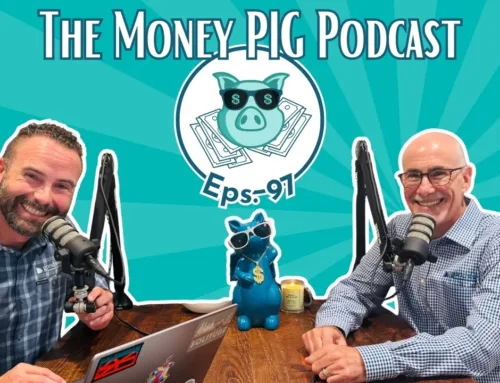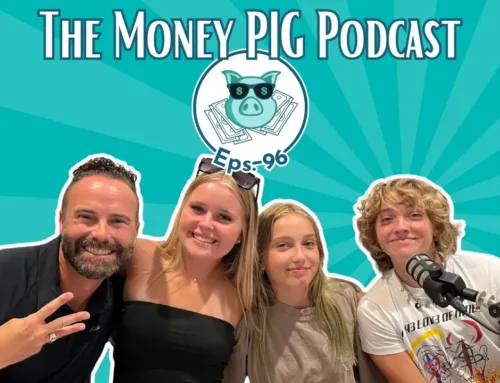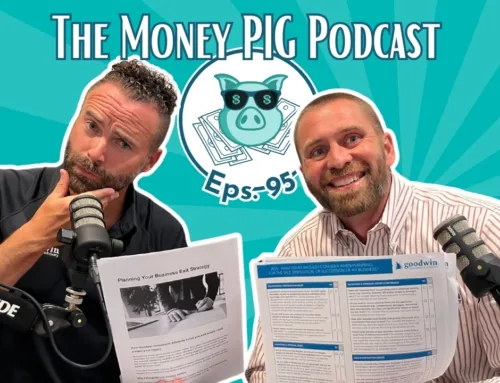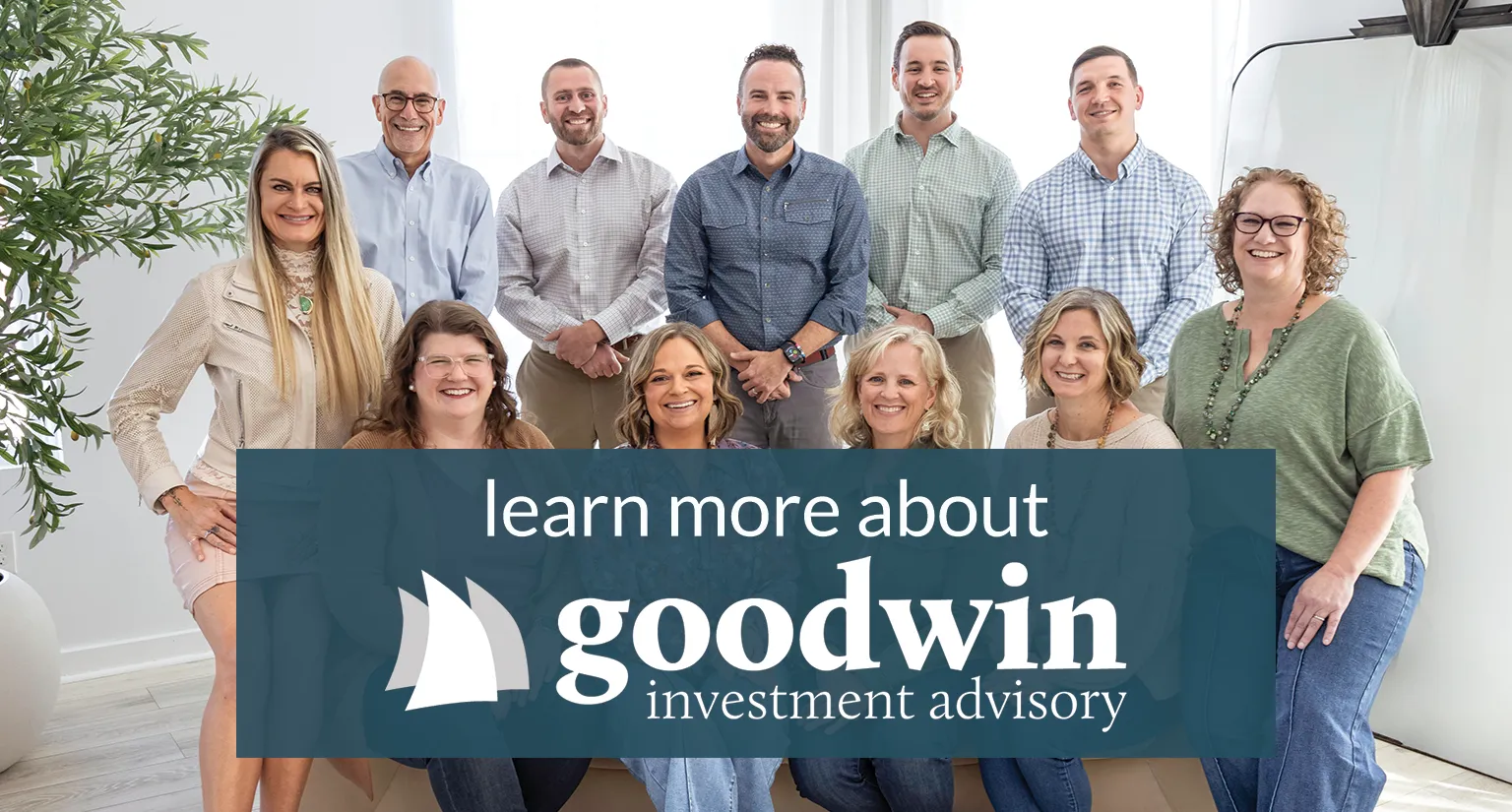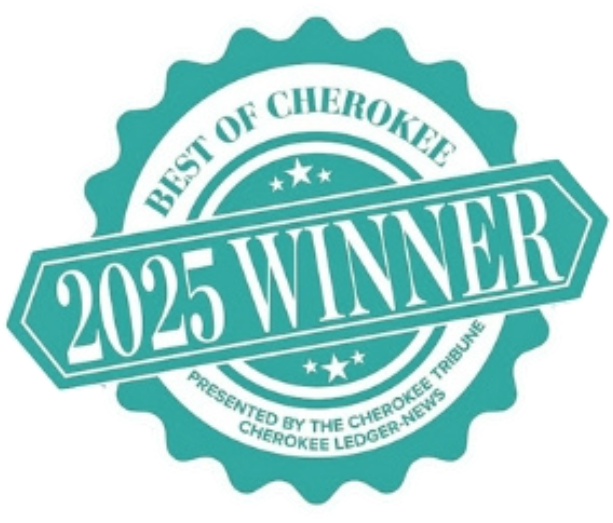
Link to YouTube – https://youtu.be/Cr0LUAhiRmY
Link to BuzzSprout – https://www.buzzsprout.com/2136084/episodes/17711211
Summary:
What does living “rich” really mean to you? Spoiler: It’s not just about the dollar amount.
In this episode of The Money Pig Podcast, Tim Goodwin and Ray Brown dive into how Goodwin Investment Advisory helps clients define—and achieve—their own version of a rich life. From celebrating milestones with a retirement bell, to creating dynamic, evolving financial plans, they explore how to build a future that’s about more than just numbers.
You’ll hear:
- The key question that helps clients envision their future
- Why “rich” looks different for everyone
- How tracking progress builds both confidence and peace
- Why your financial plan should evolve as life changes
- How generosity, meaningful experiences, and “memory dividends” make wealth truly fulfilling
Whether you’re decades away from retirement or already there, this conversation will inspire you to think beyond your bank account and design a life you love—on your terms.
Listen now and start defining your rich.
Read the blog that inspired this episode and download the guide:
Blog Link: https://www.goodwininvestment.com/let-us-help-you-find-your-rich/
Like, subscribe, and leave us a review if this resonated with you!
Enjoy the episode?
Subscribe, share it, and leave us a review on Apple or Spotify!
For personalized financial guidance, schedule an intro call with our team at Goodwin Investment Advisory in Big Canoe, Georgia. Our CFP® professionals can provide advice and help you navigate how to invest your wealth and plan for your retirement. We’d love to help you live out your legacy! To learn more about the benefits and services we offer click here.
Goodwin Investment Advisory is a Registered Investment Advisory firm regulated by the securities and Exchange Commission in accordance and compliance with securities laws and regulations. Goodwin Investment Advisory does not render or offer to render personalized investment or tax advice through the Money PIG podcast. The information provided is for informational purposes only and does not constitute financial, tax, investment or legal advice.
Transcript:
And welcome back to the Money Pig Podcast with the one, the only, Ray Brown Pop-Up. How you doing today? boy. boy, boy. Yeah, doing really good. How about you? Doing great. Doing great. So we are going to be talking about helping our clients find your rich or their rich. Before we get into that though, Ray, is there anything interesting that you’d like to share with the audience that they can learn a little bit about you?
That’s a great question. don’t know. You tell me. mean, there’s so many things going on. Well, your wife doesn’t currently live at home. That’s interesting. About to have a baby next days away. Days away. We’re just to go with that. We’re going to keep the podcast timeless. this airs. That’s right. There may be a little baby boy, Henry. Super exciting. First one. That is exciting. We’re ready. Super cool. Got to get it going. At the hospital ready to go. So very excited about that. So yeah, I don’t know if I told you. know we’re kind of both into fashion, but I spent
$80 on a belt last week and my wife Maureen was like that is a huge waste
That took me a second. That’s too much. I was about to ask you what was the belt? The waist. My waist is huge. my gosh. right. Bringing it back. it back here. Helping you find your rich. So let’s get this fantastic topic off to a good start here. So Ray, when you first meet with a client,
How do you help them discover what a rich life, I’m using air quotes here, what a rich life truly means to them personally. Such a great thing. I think probably some of you listening may recall me asking you this in the past. Sometimes I’ll say, know, Tara on our team, right, does an amazing job of just doing the first interaction with clients at intro meeting. And so there’s a really great question that she asked during that intro call where it says something along the lines of, hey, if we were meeting here three years from now, looking back at that time, what does it look like to you?
Tim Goodwin (02:49.198)
I like to ask that question as well, you know, just to kind of unpack, call it a vision casting kind of assessment, but it’s like, it’s people thinking ahead. And so coming around this, you know, what does it mean to live richly? Obviously different to everyone, but kind of starts with step one, which is just contemplating what that looks like and visioning the future. It’s such a powerful question. I find if I don’t ask that question, often the default is kind of something like recent.
or urgent that’s going on in their lives. And I’m interested in that too, and I think we are. And certainly if there’s something urgent, we want to handle it. When we say like, you know, looking ahead three years, you know, where you want to be and where do you need to be to be happy with the progress, all of a sudden, what really emerges from their heart and from what they’re sharing is about important things. Right. You know?
and what that progress needs to look like. The importance is not just, oh, grow the money. It’s like, what does that mean? It’s like, of course, you want that to happen as well. That’s a big part of it. But aside from that, it’s more than just a dollar amount. And so yeah, what does a rich life look like? It’s being able to retire early or at a specific age or being able to spend X amount during retirement to do the fun things you’ve put off.
Previously, maybe you’ve had the funds to do, but you’ve not had the time to do. And so now entering that next chapter, what does that look like? I mean, there’s so many things, again, totally different to each person. It’s wild too, because some of us just are so good at hustling. We got our nose down to the grindstone. We’re going around, around, around. We hope that we’re making some grain and it’s making a pile. we’re like, I just feel like sometimes clients don’t even stop and look up and go, OK, how much?
how much grain do I have? How much gravy is over there? How much have I put away? So- what you wanna do with a Sunday afternoon is sit at the kitchen table and try to figure that out. And so, yeah. Absolutely. So they’re sitting there talking to you about it. I imagine too, like a lot of our clients have, well, we get this, they kind of feel like they’ve been building wealth quietly. Like I’m saying, like nose to the grindstone for years, decades, right? And often don’t really think of themselves as rich, right?
Tim Goodwin (04:49.612)
they haven’t really measured this pile of grain behind them. how do you help them recognize and celebrate what they’ve accomplished? Love that you said celebrate. I think that’s the biggest part of all this. At the end of the day, why are we doing any of this? Why does this stuff matter in the planning and paying attention to where we’re at right now and where we’re going, keeping the eye on the ball, you know, that’s in front of us as well as the one that’s coming at you. It’s just, yeah, another fun thing in the process. So I think for me, the process begins with, you know, obviously getting to know the client, understanding where they’re at, where they’re planning to go. But then,
something I said to someone the other day was like, how do you know like when you can retire? It’s like, well, technically, any of us can retire tomorrow, you just may not be able to spend very much. know, it’s like, retirement is it’s not an age, it’s that financial number. And so honing in on that. Right. To celebrate it, we love to just, you know, fill out that balance sheet, we’re looking at all the assets, whether it’s things we manage for a client or stuff that they’re holding away, you know, we always say, keep your emergency fund where it’s at, we do not need to have our hands in that, you know, we kind of help structure some things, but
certain assets that we’ll manage for someone. wanna also include those other things like your home value and all those other great assets in the plan. And then it’s fun to track some of those milestones. Celebrated on screen. know we’ve yesterday got a little loud in our lobby because we have a big bell in the lobby and I heard someone maybe got a eardrum ruptured. Yeah, who would have installed such ridiculously large bell in very silly. Yeah, so we did. It’s actually one of my first clients. She’s been a client since we looked up September 2004. Dang, yeah.
as she’s been here almost 21 years. yeah, she finally, it was a lot of hard work. Justin works with that relationship now primarily. And we’ve had, think something like four different meetings trying to say, hey, this pile of grain is big enough, like, and we need to celebrate and you’re ready to retire. So she agreed that she’s going to turn in her notice to her employer next week. Her friends have already started planning a retirement.
party so she said she better have retired before the party you know she’s gonna feel like that’s right yep and so we do we have a bell where clients can ring it if they’re retiring let’s say they paid off their house or maybe they’re you know certain amount of debt goal that they were trying to pay off but really too she had to hit kind of a milestone in wealth yeah that was really meaningful to her and so
Tim Goodwin (07:11.608)
That’s different for everyone too, right? It’s like, what is, you know, I got to cross the million markets. Well, we’ve got clients who have a million plus and it’s like, well, then it’s the two or it’s the five or it’s the 10 markets. Like, you know, there’s always, maybe it’s the first 500,000, it can totally be different for everyone, but it’s important to chart that progress over time and it feels good to sell.
It does. Yeah. She really celebrated. My ear, as you mentioned, was really close to that bell. I didn’t realize she was really going to go at it. Everybody’s got meetings in the building. It’s not a fire drill. I was in a meeting with a different client. They’re looking around. What is going on? mean, at the end of the day, it’s a silly bell, but the moment is so important. Yeah. was taking that pause and just spinning those moments. But I think the real reward just comes from like seeing folks have confidence. I’ve had a lot of conversations lately with some newer clients that, you know,
hiring us from the start, it’s, gosh, I want to retire, but I don’t think I can. And watching that evolution of relationship, new relationship grow over time, it’s like, by the fourth or so session, it’s like, okay, finally this is starting to click, I’m now seeing it. And so it’s like just helping the person unpack some of that and figure out what the future’s gonna I think you were talking about it before too. It’s like, when you get all these pieces together, you’re like the house and the forum canals, the cash.
you get it all into a plan and you start to see some of these projections, you’re right. You start to go, wait a second, yeah, I could retire now if I moved into a box, but in 10 years, if I retire, I can keep my house. So it’s funny. Yeah. And the same kind of thing happens with just compound interest. It’s the, what’s the old quote is the seventh wonder of the world compounding interest. It’s just one of those things that, and so you break out a compound interest calculator and actually look at it.
Speaking of first child on the way, grandma the other day was like, well, if I put a hundred dollars every month into an account on his birthday and that much, what does that look like at age 18? And you see that magic number, but also what does it look like at age 25? And it’s like, $100 a month can turn into $300,000. Like just that jaw drop moment. And so the same happens with your nest egg. It’s like, if you’re looking at a 401k or any investment or even the value in your home today versus.
Tim Goodwin (09:16.526)
10, 15, 20, 25 years from now. It’s just hard to do it in your head, right? And so like you’re saying, use a calculator or put it in a plan. You can see where these projections go into the future. That’s awesome. So Ray, when someone comes to you, they’re worried about retirement. What steps do you give them, like to give them this confidence that they can retire richly and not outlive their money? Yeah. Step one I say is, like I kind of mentioned earlier, just contemplate the future. Begin now, start today. It’s like design that look. It’s again,
retirement by design, looks totally different to every person, but you gotta have a plan, you gotta be focused on what it’s gonna look like and what you want it to be. And there’s no right or wrong answers along the way. so step one is just spending a few moments contemplating what that is, what it looks like, and then we can help kind of reverse engineer back into the design of, obviously, income’s a big, part of the future, but those income goals and all the other things that come with it. So yeah, just start, I think, start to plan.
So I think when you’re doing that with clients, not only when this plan kind of gets built more built out there, they’re getting a sense of confidence. I imagine they’re also getting a sense of peace. Yeah. Right. And we talk about the good life pyramid and at the bottom of the pyramid, really trying to help our clients, you know, manage the money, reduce the debt, increase the wealth, you know, cover risks and things like that. And when you start to really check those things off, this it creates kind of this environment, I think, for for peace to come in. So.
It starts to just different little boxes along the way. It’s like at first it’s like, okay, the big idea, I’ve got to retire. Okay, great. But there’s a lot more to it. It’s like, oh, shoot, know, 10 minutes into this, it’s how are we going to pay for health insurance, you know, retiring before age 65 before Medicare starts, right? Oh, gosh. And then what if I need long term care? It’s always that what if what if what if what if I want to leave something to the grandchildren? What if I want to help with college? Like, so there’s so many other things to unpack along the way. But that’s just part of that journey and that runway. It’s starting today, envisioning the future and
take it step by step. So speaking of that, let’s say you’ve got a client, you built out their plan and you know over time you’re meeting with them and you’re updating that plan. For a lot of folks life can change pretty dramatically between the last time you met with them and the time you’re meeting with them today. They like to keep us busy. That’s right. Making us work for it. And whether they’re in control of it or not right, taxes change, market changes, unexpected life events can change. So how are you pivoting from
Tim Goodwin (11:37.549)
this planning that you did with them before in the midst of all these changes. Yeah, we call it a dynamic plan for a reason. mean, it changes, it evolves, some folks will look at it and say, okay, I’ve got to actually this meeting with some gentleman yesterday that’s, here’s the plan and I can only spend this much in retirement. It’s like, no, no, like you can, there’s a threshold there, know, and so we can respect that as time goes on, but understanding that your plan is just that. We update it, it evolves.
some other folks that are, know, sometimes people will call us and say, hey, I just want to do a one time plan. And we’ve shifted now to say like, well, probably not in your best interest. Sure, we’d love to take a check from you and sit here and do the, you know, eight hours of planning that goes into putting together that initial plan. But right now my new joke, I say it’s outdated the second you walk out the door, right? Because life happens and the stock market does something that we weren’t expecting this year. Again, we’re never focused on the market in any given short term period, but
It’s a long-term play, still there’s variables and life happens and projects go over and how many remodel projects have gone over budget. it’s like, can roll, we roll with the punches and we adapt the plan. so, and that’s good and bad. It’s not always a restrictive thing. think sometimes it’s, my gosh, you’re on track at age 95 to have X amount of dollars. That’s way too much. So like you need to increase spending. It’s not always like, oh, this is problematic. We got to pivot and make a change. It’s, we’re making a change, but it’s in a better direction.
What a fantastic problem to have. Yeah. So it’s about planning, not the plan, the ongoing plan. I like that. the changes and it being dynamic. Right. And when these things change and you can hear other episodes where we’ve talked about the different strategies that can be involved. Maybe the tax changes present new strategies. Maybe the market changes, maybe some unexpected life events can present new strategies that weren’t there before. Yeah. And so that’s why the ongoing planning is necessary.
You know the the big beautiful bill that passed made cuts permanent that before we were just guessing when we did planning that those cuts would stay and let’s say you hadn’t paid a financial advisor for a plan a year or two ago they may have said a Projection that those cuts didn’t stay or that they did stay so it’s dynamic just with the tax code some of those conversions no longer apply and so many different you know phase outs and the rules around the limits, but yeah, we joke internally now it’s like that big beautiful bill we’re calling it the
Tim Goodwin (13:57.551)
CPA and financial advisor job security. You’re not going anywhere. If you want to meet with an advisor and you just want to get their advice to help you make a decision now, I think that makes sense. They can help you put things together. Give you that confidence to make a decision now. But if you’re like, hey, give me a plan. Okay, the plan says I can retire in 10 years with X dollars. Great. I’m going to take this plan in 10 years. It’s going to work out.
is gonna be different, like you’re saying. You’ve gotta do the planning. It’s a relationship and there’s so many other fun things that come up along the way. It’s like there’s long time clients that have been with me, know, gosh, relationships I’ve been working with three, four years now and it’s okay. Like all the time we’re pulling new things out of the treasure chest and let’s start doing this. This is not something we’ve tapped into for that person and now it’s like, so it keeps us busy in a good way. It’s great for the client, it’s great for us. It’s fun to stay engaged and just dreaming. It’s like, okay, let’s pivot. Let’s do things better, different.
Maximize the tax move the good life pyramid too. Yeah All right, so I’ll kind of lay in the plane here with this last question for someone listening who wants to not only grow wealth But live meaningfully and generously. What is your advice for them to get started? That’s a really good one Gosh, I would say take a look at the dial of zero the book. We talked about it a lot of us big fans around me
sent it to all our clients, was that last year at Thanksgiving? never want to copy. Just such a great book that kind of makes you think a lot differently about wealth. And again, I probably said it a bunch on this pod before, but coming into this industry, you think you’re going to be like the Dave Ramsey that’s like cracking the whip and telling folks you’ve got to save for retirement, you got to save 15%, this and that. I find now on the day to day, I spend more of my time convincing folks to let go. Whether that’s being more charitably inclined or to spend more in retirement or to…
reduce the amount you’re putting away into the 401k if you’re still in those working years, because the plan is set and based on lifestyle, you got this, go take that extra vacation or do that thing. so it’s a collaborative approach. goes both ways, but I think it, again, it all kind of starts with that initial dream session. You absolutely start paying attention to it. And another, you know, kind of pitch for the ongoing planning is that relationship. It’s not a one-time thing. It’s that accountability. It’s continuing to pay attention to it. You know, you,
Tim Goodwin (16:13.336)
heard somebody say like when you get married, the reason you got married is because you were spending time with this person. You were focused on that person and then boom, look what happens. You all get married. And so it’s like you become what you’re focused on and paying attention to. And I think just having those recurring sessions or meetings where you’re looking at your plan, really just honing in on things, that’s what’s driving you. So. I like it. You’re aware, cause I’ve been sharing this with the team. So I’m working on a new book.
starting to wrap it up called the seven secrets of happy millionaires. I my advance early signed. That’s right. need to get that hard back, please. Yeah. And, you I won’t kind of go through all seven right now, but it was interesting. I was kind of challenged with, well, out of these seven, you know, some of them are a little more focused on this is how you get to millionaire status. And then, and then some of them are maybe a little more focused on, how do you get to millionaire status and you’re happy? What’s that happy factor of being a millionaire?
And I think all seven of them play a role in the level of happiness of that millionaire. But I think one of the biggest ones is the generosity side of things. It’s the generosity side of things. And it’s what you were sharing with the Die with Zero concept where we joke about that saying what like coffins don’t have pockets, right? Yep. so both of those concepts I have is kind of the generosity piece.
you know, make these memory dividends, do these meaningful things, have these meaningful experiences, build legacy, be generous before you die. But like you said, sometimes it’s hard to let go of this money that we’ve built, our nose of the grindstone, that big pile to finally start spending it for so long and we’ve been earning it and building it, but now we’re supposed to stop earning and we’re supposed to start spending. And now the pile’s getting smaller. It bigger most of my life.
Now it’s getting smaller. So then you see folks all the time where it’s like, gosh, you’re still spending, you’re in retirement. And this is that jackpot, that kind of financial independence moment. So many times you run those calculations. It’s like the hill’s not going down. It’s continuing to grow. Even though you’re spending, you’re not spending it fast. And it’s like, what a great thing to have. so, yeah, but the generosity, it’s like, it requires those reps. It’s the muscle that you’ve got to flex and you’ve got to start. And I heard that was a sermon in church. I think last week was like, yeah, just, just start. How do you, some of the same kind of question you asked me a minute ago of how do you
Tim Goodwin (18:36.822)
What do you do? And it’s like to someone it’s like you just start like if you’ve not been charitably inclined Just start start small get going pay attention to it. And so it’s funny just seeing that Lot of friends lives and things and clients as well. It’s like once it starts it grows. So it’s fun. Awesome. All right Thank you so much for coming and joining us again and talking about how we help clients live through their rich so Listeners we do have that blog on our website. So if you go to the knowledge center you can
kind of search for like, Find Your Rich, that’ll probably pull up that blog, or you can just subscribe to the blog. And then you get these awesome blogs from be preferred if you do that. And if you want to learn more, there’s lots of resources there. My old book, Exponential Wealth, there you can download it. soon. Outdated. Timeless, timeless evergreen concepts there, of course. And if you want to begin a conversation, can schedule an intro call.
Wanted to thank Angela our producer and Tara our content creator for helping out with this great episode today. Evance helps to edit these. As we sign off the array, I always love kind of sharing some gratitude. And so I’ll go first. I’ll share what I’m grateful for. And this is kind of funny. I’m grateful for new tires on my truck. I’m not grateful for how much new tires cost. I mean, that’s insane. That is insane how expensive they are. But if you can be prepared and have money set aside and you get… Because you start to get worried about your tires. Like, are they going to pop?
Am I gonna slide on the water? What if like my wife and kids are driving the car? Like is this car as safe as possible? And I was trying to stretch it out, know, like any good millionaire next door would, right? Amortizing cost over time. And I got the great oil change guys are like, yeah, I think you got like two more oil changes to him before you need to replace these. So I had a good heads up, but I’m kind of just said that one oil change and I got a nail in the side of one of them. And they’re like, man, your tire is too warm.
for us to plug this may be a jump, but now driving around with four new fresh, because it doesn’t last long, right? All of a sudden you gotta rotate them properly. You gotta stay on top of that maintenance schedule. Hey, I’ve got some good tread on these tires. It makes you feel good driving around. Rotate them frequently. Gotta be grateful for the small things. Thankful for the tire rotation.
Tim Goodwin (20:52.206)
You just reminded me that I need to rotate my tires. Thank you for that. Great. Great. I’m grateful for that tip, but I was super grateful for this season we’re in here. It’s getting to serve so many new clients. Things are busy and well, and it’s just good problems to have when you’re doing fun stuff you’re passionate about. It doesn’t feel like work. And that’s how you know you’re the crazy person or the nerd that’s landed in this kind of seat. It’s like most folks cannot stand this type of stuff. But if you secretly love it, it’s like you’re not going anywhere, but grateful for that and just.
this season we’re in with a new baby on the way. That’s you’re a little extra busy, right? you’re about to take paternity We’re ready. We’re ready for it. But super grateful for friends, family, great support systems, the team here. It’s just been truly, truly great. So yeah, ready to go on the other side. Yes, sir. All right. Well, we appreciate you so much. Thank you, listeners. Have a great day. Bye. All right.
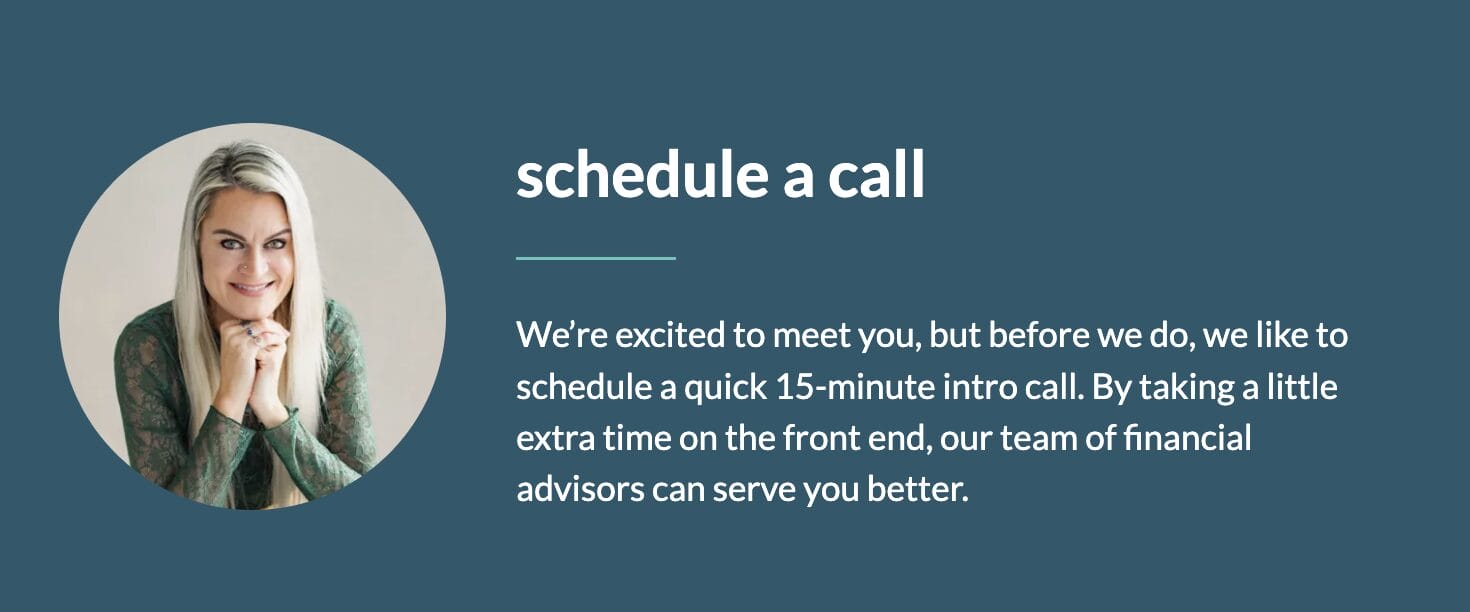
The Money PIG podcast is hosted by Reid Trego. Goodwin Investment Advisory is a Registered Investment Advisory firm regulated by the Securities and Exchange Commission in accordance and compliance with securities laws and regulations. Goodwin Investment Advisory does not render or offer to render personalized investment or tax advice through the Money PIG podcast. The information provided is for informational purposes only and does not constitute financial, tax, investment or legal advice.
For personalized financial guidance, schedule an schedule an intro call with our team at Goodwin Investment Advisory in Canton, GA . Our CFP® professionals can provide advice and help you navigate how to invest your wealth and plan for your retirement. We’d love to help you live out your legacy!
Goodwin Investment Advisory is a Registered Investment Advisory firm regulated by the Securities and Exchange Commission in accordance and compliance with securities laws and regulations. Goodwin Investment Advisory does not render or offer to render personalized investment or tax advice through the Money PIG podcast. The information provided is for informational purposes only and does not constitute financial, tax, investment or legal advice.

